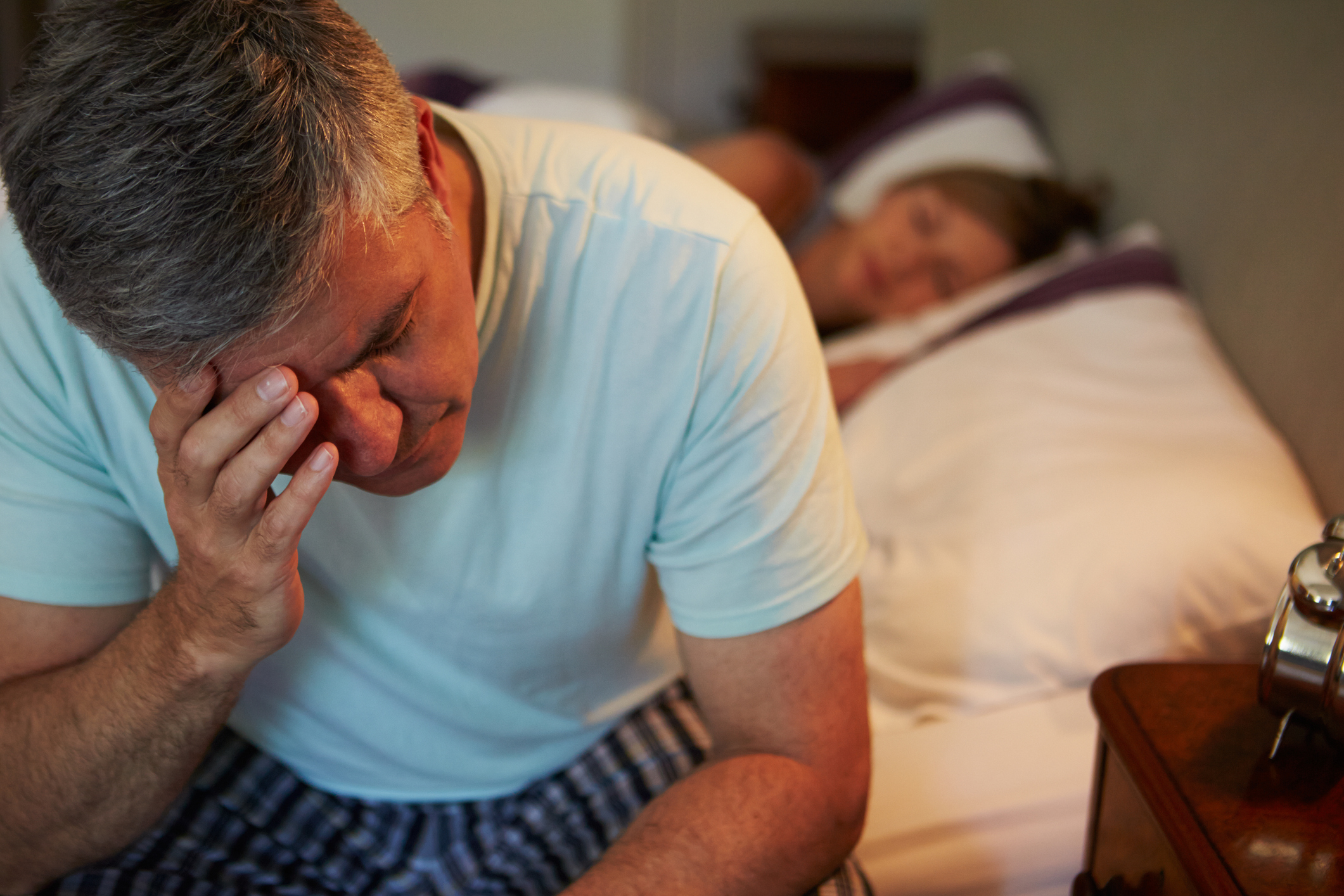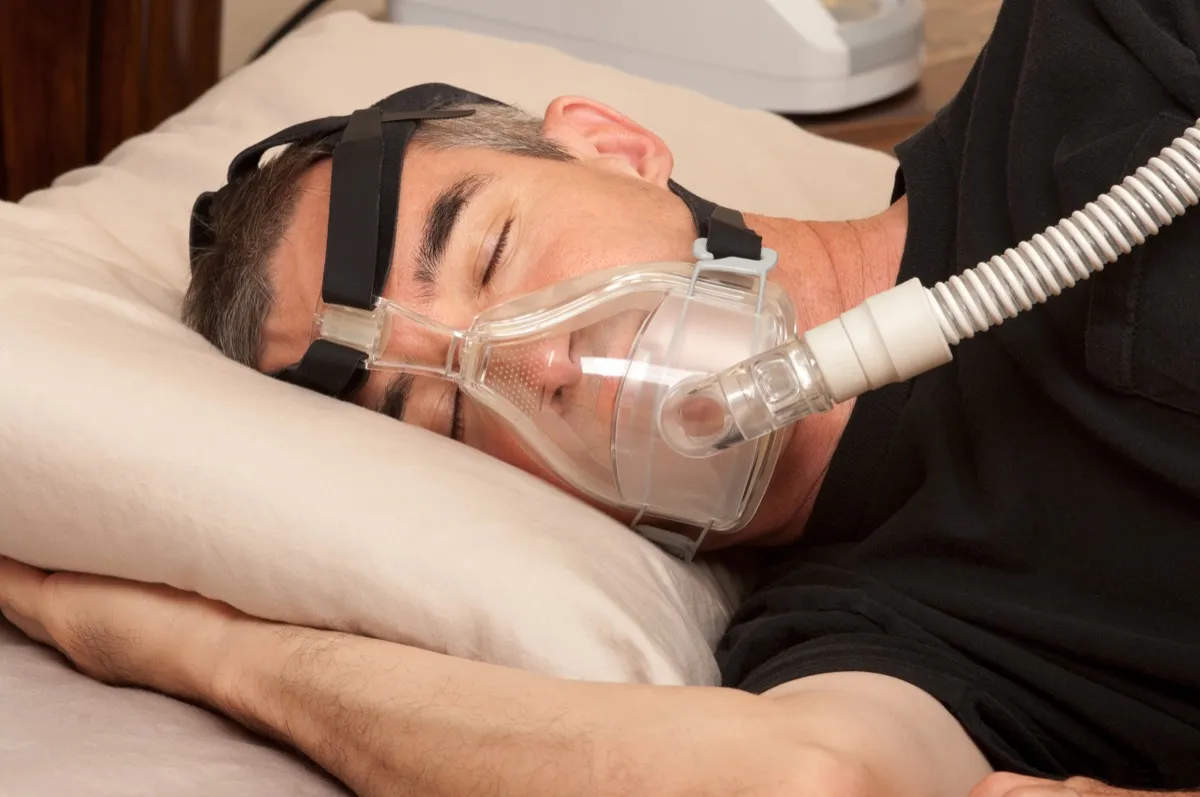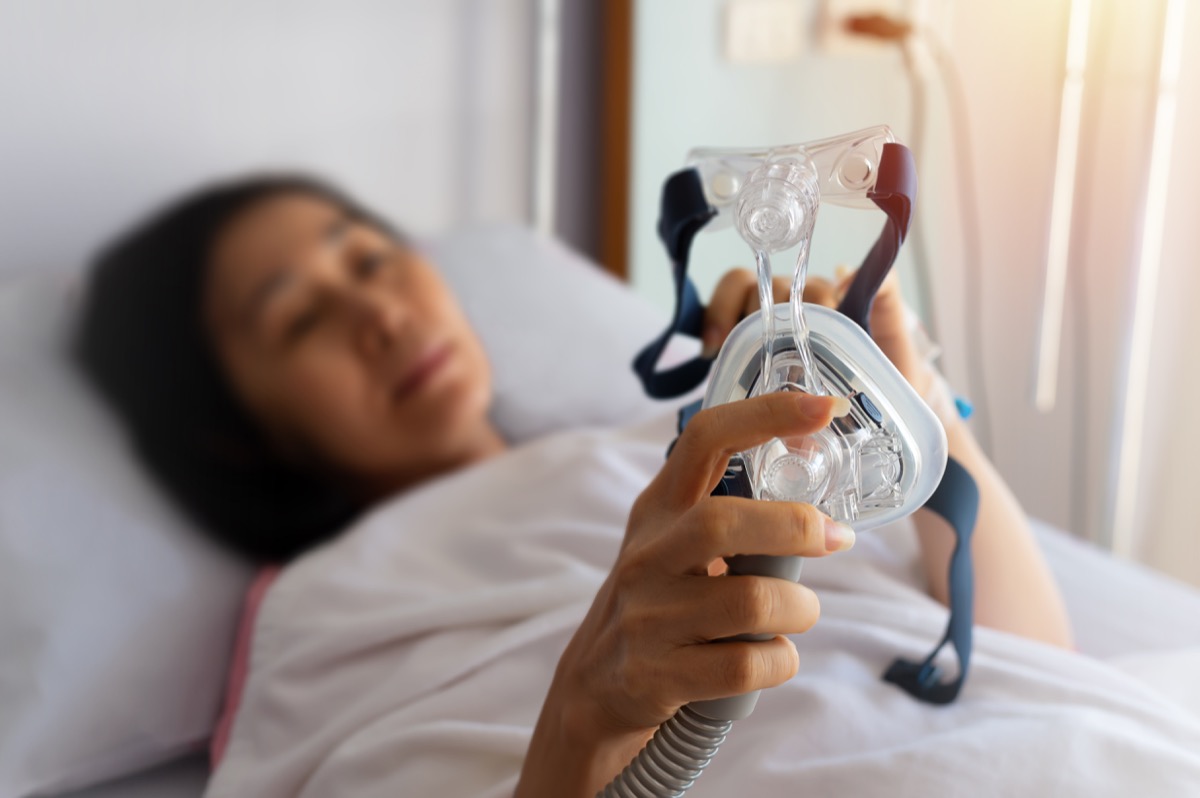You May Help Ward off Dementia By Doing This at Night
Dementia can affect anyone, and it currently has no known cure. However, certain habits can help lower your chances of developing cognitive decline later in life. In addition to maintaining a healthy diet, exercising regularly, and keeping up social ties, there’s one more way to preserve your cognitive health with a simple lifestyle change. Read on to learn what it is—plus the other major benefit it has for your health.
READ THIS NEXT: If This Has Happened to You, Your Dementia Risk Soars, Experts Warn.

A wide body of research exploring the connection between sleep and cognitive health has established a link between sleep disturbances and dementia. For example, a 2021 study published by the National Institutes of Health (NIH), which reviewed the health and sleep data of over 8,000 individuals in Britain, found that people in their 50s and 60s who slept poorly were at increased risk of later developing dementia. In fact, those who stayed asleep for six or fewer hours each night were at a 30 percent increased risk, compared with their peers who slept longer.
“The findings suggest that inadequate sleep duration could increase dementia risk and emphasize the importance of good sleep habits,” the researchers wrote.
READ THIS NEXT: If Your Handwriting Looks Like This, You Could Have Early-Onset Alzheimer’s.

Though many underlying conditions can cause poor sleep, for roughly 30 million Americans, the culprit is sleep apnea, a condition which causes periodic pauses in breathing during sleep. Individuals with mild obstructive sleep apnea (OSA) may experience these pauses between five and fifteen times per hour, the Centers for Disease Control and Prevention (CDC) says. Meanwhile, those with severe apnea may experience these pauses at an alarming rate of 30 times per hour. That’s one pause every two minutes.
Each time, the body reacts with a stress response that can spike your blood pressure, blood sugar, and heart rate. Over time, this can take a serious toll on your heart and lead to serious coronary complications, the health authority warns. By eliminating the pauses in breathing, you can also eliminate the stress response and minimize your risk of complications.

Using a CPAP machine (short for continuous positive airway pressure machine) at night could make all the difference in your quality of sleep. These machines work by by pumping humidified air through the nose and keeping the throat open with air pressure, making pauses in breathing far less frequent.
But the benefits don’t stop there, doctors say. “Many studies show that regular use of CPAP reduces blood pressure and improves wakefulness during the day,” experts from Johns Hopkins Medicine write. “People with sleep apnea who use CPAP also report improved quality of life. In some observational studies that compare people with apnea who use CPAP versus those who don’t, the CPAP users have lower risk of stroke and heart attack and lower blood glucose,” they add.
For more health news sent directly to your inbox, sign up for our daily newsletter.

Though there is no cure for dementia, experts say that those with mild cognitive impairment who also suffer from sleep apnea may be able to slow the progression of dementia with the help of CPAP machines.
A 2022 study published in the American Journal of Respiratory and Critical Care Medicine found that among older adults with sleep apnea and mild cognitive impairment, treating apnea may reduce the risk of a future dementia diagnosis. Specifically, using a CPAP machine at night can help improve short term memory.
A separate 2021 study by researchers at Michigan Medicine’s Sleep Disorders Center found similar results. After reviewing the Medicare claims of over 50,000 seniors who suffered from OSA, they learned that those who used CPAP machines were less likely to be diagnosed with dementia or mild cognitive impairment over a three-year period, compared to those who did not use the machines. “We found a significant association between positive airway pressure use and lower risk of Alzheimer’s and other types of dementia over three years, suggesting that positive airway pressure may be protective against dementia risk in people with OSA,” says lead author Galit Levi Dunietz, PhD, MPH, an assistant professor of neurology and a sleep epidemiologist.
Speak with your doctor about whether a CPAP machine is right for you, and to discuss any symptoms you may have noticed which could suggest cognitive decline.
READ THIS NEXT: Sleeping in This Position Could Be Hurting Your Heart, Studies Say.
" Conservative News Daily does not always share or support the views and opinions expressed here; they are just those of the writer."

Now loading...